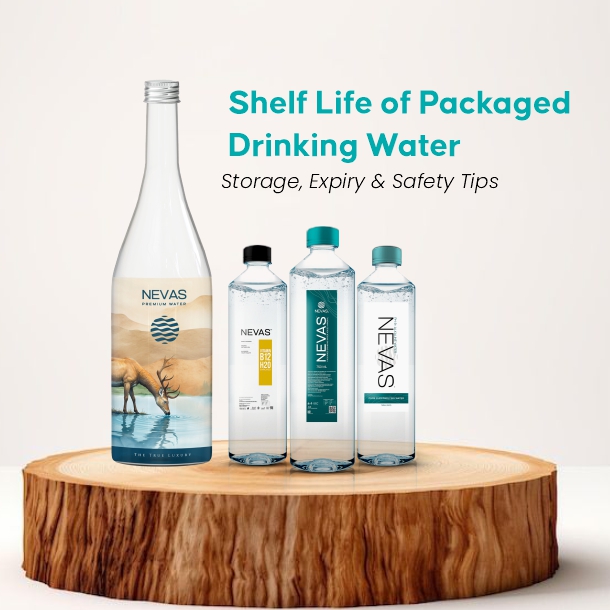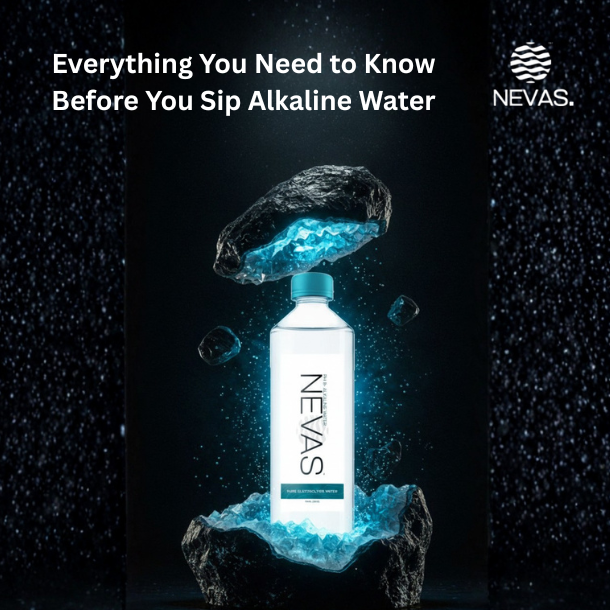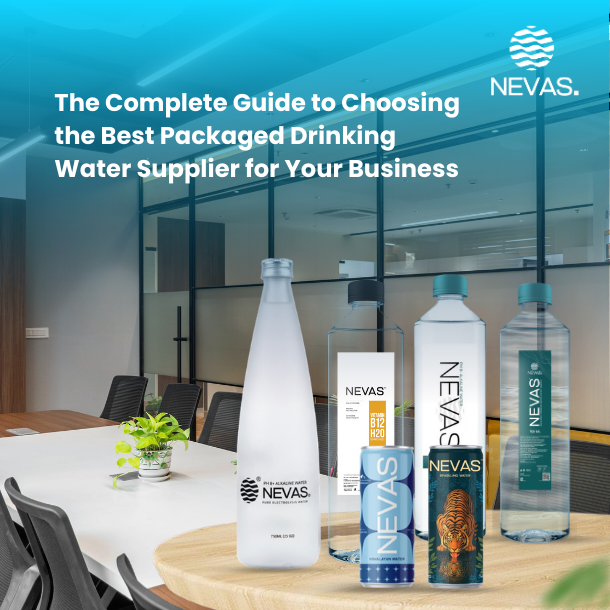Home » Shelf Life of Packaged Drinking Water: Storage, Expiry and Safety Tips
Shelf Life of Packaged Drinking Water: Storage, Expiry and Safety Tips

While outdoors, when you feel thirsty, you usually grab a bottle, open it, and quench your thirst. That’s easily accessible water, isn’t it?
But wait. Rewind those few seconds and pause before you open the bottle.
Did you wonder where the water you are about to drink comes from, and how long it’s been sitting on the shelf? And even generally speaking, have you ever given the expiration date of packaged drinking water a thought?
Most of us don’t. No one to blame here. But usually, the thought doesn’t occur to us!
So, now that we’ve thought about it today, let’s dive into the fascinating, and at times, surprising world of bottled drinking water shelf life, storage, and safety.
Does Pure Water Ever Expire?
No. It doesn’t as it is a stable chemical compound that doesn’t spoil like milk or grow mold like bread. But then, you’ve seen those ‘best by’ dates on bottles, haven’t you? So, do those dates mean nothing? They certainly do!
The expiration date isn’t about the water but the packaging. Usually, packaged drinking water comes in plastic bottles, made of polyethylene terephthalate (PET). The plastic begins degrading over time and under certain conditions.
What Affects the Freshness of the Packaged Drinking Water?
The real culprits are usually hidden. That’s the case with packaged drinking water as well. Here are some factors that can make the packaged drinking water less appealing.
- Plastic Leaching
When you expose plastic bottles to heat, direct sunlight, or store them for prolonged periods, small chemical compounds from the plastic can leach into the water. Such exposure, particularly to heat, can alter the water’s taste and raise potential health concerns over a period.
- Microplastics
Heard this somewhere? We’re sure about it. Microplastics have garnered a lot of attention these days. Bottled water has tiny particles of plastic even before you open it. However, more concerning about these particles is that their presence grows over time and under adverse storage conditions. Research is already underway. But no one can deny that it is a growing concern worldwide!
- Odor Absorption
Plastic is a permeable material. So, if you store bottled water near a strong-smelling chemical or even aromatic foods, the water can absorb the odor and taste unpleasant. So, you surely must be careful while storing water.
- Bacterial and Algae Growth
Breaking the seal exposes the water to various environmental conditions. So, it no longer stays sterile. Air exposure introduces bacteria and different types of microorganisms. Now, remember, pure water doesn’t breed such microorganisms. But contaminants from your hands or the environment can provide conditions conducive to bacterial growth.
Worried about how long that water bottle’s been sitting on the shelf? With Nevas, you don’t have to be.
So now, you may ask, how to store packaged drinking water to keep it as pure and refreshing as possible. Let’s look at some simple yet effective tips.
Packaged Drinking Water Storage and Safety Tips
Here’s how you can store bottled drinking water safely.
- Store the bottled water in a cool, dry place, away from direct sunlight and heat sources. Heat expedites plastic degradation and chemical leaching.
- Avoid storing the bottles near strong chemicals, pesticides, cleaning products, or gasoline. As stated earlier, plastic can absorb the fumes, spoiling the water.
- Before you drink the water, check its smell (does it have an unusual or off-putting odor), is the taste strange or bitter, and is it discolored, cloudy, or can you see any visible particles in the water. If you notice any or all of these signs, refrain from drinking it. Discard such water for safety purposes.
Need Packaged Drinking Water? Don’t Choose Randomly. Choose Nevas!
Yes. We are water bottle manufacturers with years of experience and a consumer reach in millions across various parts of India. Our water comes from safe sources and is packaged in bottles made from recyclable materials to reduce the environmental impact and provide quality hydration. So, don’t choose just any water randomly. Explore our products and make the right and informed choice. Want to connect with our experts for more queries or bulk orders? Email us at sales@nevas.in.
Frequently Ask Questions
Can I drink bottled water that’s past its best by date?
Generally, yes. The best by date doesn’t refer to the water but the plastic bottle. The water usually stays safe if you store it in a cool and dark place. The date indicates when the plastic might begin affecting the taste. If the water tastes off or smells unusual, avoid it.
Does freezing water increase its shelf life?
No. Freezing stops bacterial growth. However, pure water doesn’t have many bacteria. The issue is with the plastic bottle that can crack, or leach easily when frozen.
Should I drink bottled water even if it tastes plastic?
It means the chemicals have likely leached into the water, indicating a decline in the water quality. However, if the taste is too strong, discard it.


